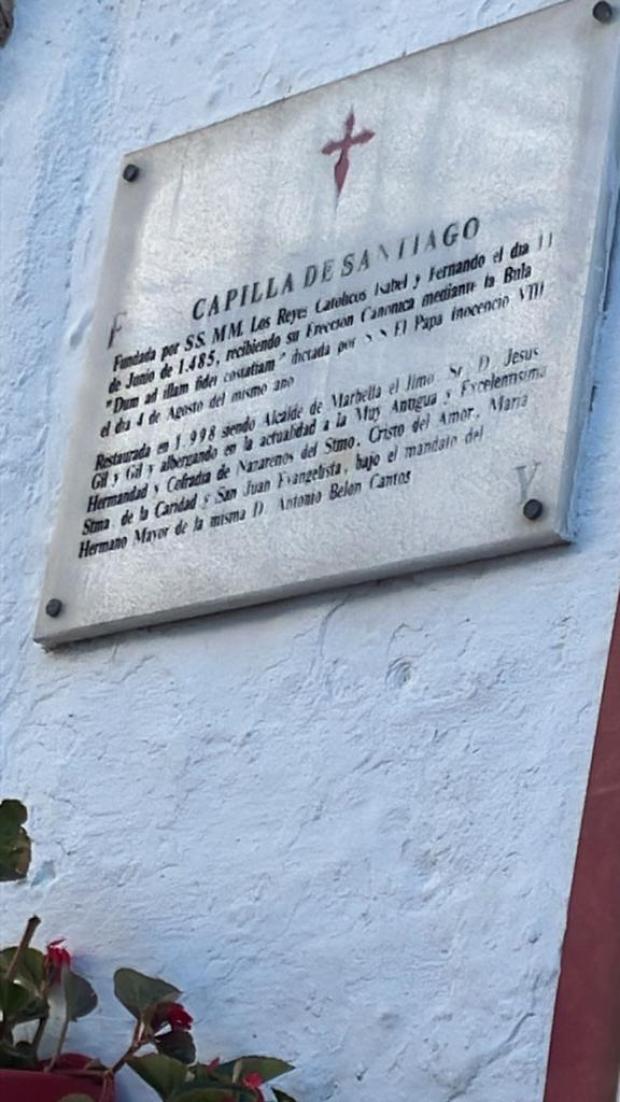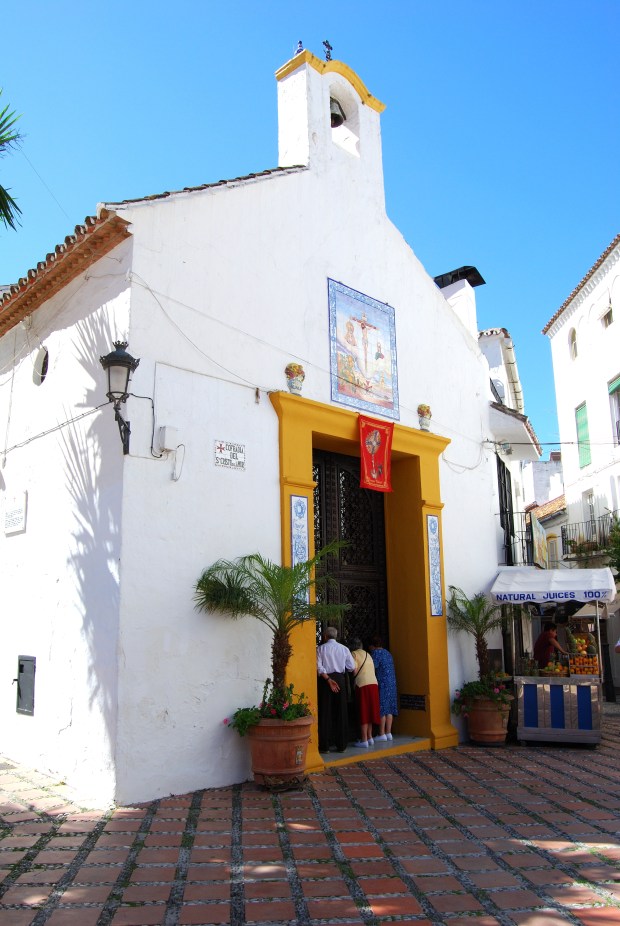Lenten Campaign 2025
This content is free of charge, as are all our articles.
Support us with a donation that is tax-deductible and enable us to continue to reach millions of readers.
Marbella, the golden-beached town nestled in the famed Spanish Costa del Sol, is the embodiment of a certain kind of Mediterranean allure: upscale resorts, vibrant nightlife –basically, a playground for the affluent. And still, its Old Town, with its cobbled streets and white-washed buildings in typical Andalusian style, is home to one of Spain’s most significant hermitages: the Ermita de Santiago, St. James’ Hermitage.
The hermitage itself is easy to pass by. Nothing in its exterior makes it stand out, especially if compared to the neighboring houses and buildings in Marbella’s casco histórico – that is, its historical downtown. But an attentive look would reveal an important detail: a rather small plaque in one of its external walls claims the hermitage was established by the Catholic kings Isabel de Castilla and Fernando de Aragón on June 11, 1485 – that is, seven years before Columbus’ arrival in the Americas.

1485 was also the year when Fernando managed to retake the city from the Moors. According to well-recorded chronicles, the city was taken back from the Moors on June 8, meaning the hermitage was built just three days after Ferdinand’s troops entered the city. Those same chronicles claim the hermitage was first a small mosque, and was rededicated as a Catholic place of worship.
This picturesque hermitage is thus a revered religious and historical landmark, despite its rather simple design. Its whitewashed walls, terracotta roof tiles, and understated façade evoke a sense of tranquility, but also of reverence: Today, the hermitage houses three of Marbella’s most beloved images, cared for by the Muy Antigua y Excelentísima Hermandad y Cofradía del Santísimo Cristo del Amor, María Santísima de la Caridad, y San Juan Evangelista – in English, the very ancient and noted brotherhood and guild of the Most Holy Christ of Love, Our Lady of Charity, and St. John the Evangelist.

Inside, the chapel’s interior is equally captivating. Simple wooden benches line the space, allowing worshipers to gather for prayers and contemplation. The altar, adorned with religious iconography and embellishments, serves as the centerpiece of devotion. Three full-sized images stand by it: those of (as expected from the name of the brotherhood) the Holy Christ of Love, Our Lady of Charity, and St. John the Evangelist. These sculptures are the very same ones that are carried in procession during Holy Week – a celebration all Andalusians take seriously.
In a town known for its modern luxury and vibrant lifestyle, the Ermita de Santiago stands as a quiet, modest, and simple (yet powerful) reminder of Marbella’s enduring spiritual heritage. Visitors seeking a moment of introspection can easily find solace within its walls. With its timeless architectural elegance and historical significance, the chapel is a beloved destination for both tourists and locals, offering a glimpse into a different kind of Marbella, and inviting all who enter to connect with its storied past.



